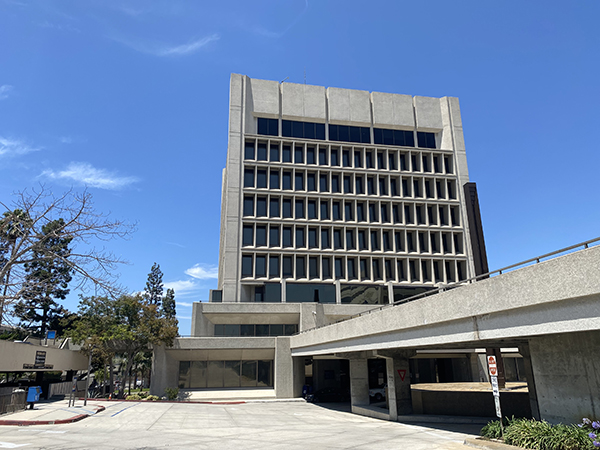By Emilie St. John
Contributing Writer
INGLEWOOD — The city has revised its construction cost estimates while pushing back the proposed opening date of the Inglewood Transit Connector project.
Although the transit connector was anticipated to begin service for the 2028 Olympics, the Federal Transit Administration has pushed the start date to 2030 after pledging half the construction costs
“It’s [ITC] is going to improve the fan experience,” said Inglewood Mayor James Butts, who has championed the project. “Fans, our residents and the employees deserve affordable and efficient transit options. This system will be good for the environment. It will again create jobs.”
The project was initially pegged at a price tag close to $3 billion but documents published to the FTA’s website indicate the costs have been reduced.
“The city has worked with the FTA to establish a $2.2 billion budget,” said Lisa Richardson, a public relations specialist working on the project.
The city initially requested 60% of the construction costs, approximately $1.6 billion. However, the project is set to receive more than $1 billion from the Federal Transit Administration’s capital investment grant program.
“FTA’s commitment of $1.009 billion, coupled with the $873 million already secured, represents $1.9 billion for the project,” Richardson said. “In addition, $200 million is reserved for unforeseen events that exceed the contingencies built into our project budget.
“This means the project has approximately 85% of the funds needed for the project.”
Richardson added that the joint powers agreement responsible for the project hopes to secure the remaining funds this year.
Between now and late September, the city expects to have expenditures of approximately $283 million for consulting costs, property acquisition for right-of-way, design and construction mobilization and start-up and administrative costs.
To ensure they receive the federal funding, the city of Inglewood and the Metropolitan Transportation Authority must clear several more hurdles, including securing the other half of the money and making substantial progress to prepare the project for construction.
The project documents published to the FTA’s website don’t indicate how they achieved the cost savings.
Gov. Gavin Newsom unveiled his proposed budget on Jan. 10 that indicates funding for transportation-related projects.
The budget delays $1 billion of formula transit and intercity rail capital program grant funding from 2024-25 to the 2025-26 budget, leaving $1 billion for this program in 2024-25.
Inglewood is optimistic the state will send the remaining funds needed to start construction.
“The city has partnered with Caltrans to apply for a reconnecting communities and neighborhoods grant made available through the U.S. Department of Transportation, in addition to working with the South Bay Council of Government and the California Transportation Commission to draw down additional funds that may be available,” Richardson said.
She declined to answer questions on whether Inglewood taxpayers will be asked to share any of the construction costs considering they are already obligated to spend $10 million annually towards ongoing maintenance and operation costs pegged at $33 million, according to the Federal Transit Administration.
According to the FTA, Inglewood has assembled various funds to pledge towards the ongoing maintenance and operation costs which could affect city services.
“Approximately 7% of the funds needed to operate and maintain the transit system in the first full year of operations is considered committed or budgeted, and the rest is considered planned or unspecified,” the FTA website said. “Sources of operating funds include state low carbon fuel standard tax credits; signage, advertising and naming rights; farebox revenue; parking lot revenue; city of Inglewood funding from existing third-party commitments which include local transient occupancy taxes, infrastructure impact fees, allocations from Metro local return revenue and existing city billboard revenues; and proposed private funding from third-party agreements with neighboring sports and entertainment venues in the transit corridor.”
Inglewood has also identified access to $210.2 million of funds via additional debt capacity, cash reserves or other committed funds to cover unexpected cost increases or funding shortfalls.
The city also plans to issue bonds to finance the transit connector.
The city has adopted balanced budgets over the last two fiscal years due in part to an infusion of $32 million from federal funds made available under the American Rescue Plan Act in 2021.
The city received a total of nearly $32 million but declared a fiscal emergency a month after receiving it.
The fiscal emergency triggered a special election to raise taxes to put towards the transit connector project. Voters passed one ballot measure and rejected the other.
Due to the gap in funding, the transit connector is now projected to open in 2030 but could happen in time for the 2028 Olympics.
Emilie St. John is a freelance journalist covering the areas of Carson, Compton, Inglewood and Willowbrook. Send tips to her at emiliesaintjohn@gmail.com.













